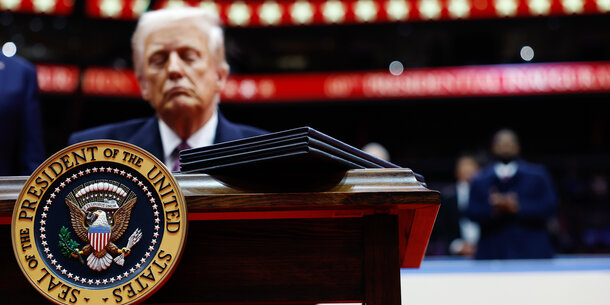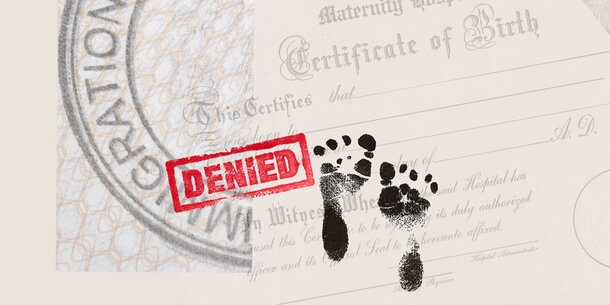Today 15 historians filed an amicus brief with the Supreme Court in Trump v. United States. The historians—Holly Brewer, Rosemarie Zagarri, Jack Rakove, and 12 others— reject the former president’s claim of immunity from criminal prosecution. They find that accountability under the law has been a defining principle of the American presidency since its origins.
“When designing the presidency, the founders wanted no part of the immunity from criminal prosecution claimed by English kings,” said Brewer, Burke Chair of American Cultural and Intellectual History and Associate Professor of History at the University of Maryland. “That immunity was at the heart of what they saw as a flawed system. On both the state and national level, they wrote constitutions that held all leaders, including presidents, accountable to the laws of the country. St. George Tucker, one of the most prominent judges in the new nation, laid out the principle clearly: everyone is equally bound by the law, from ‘beggars in the streets’ to presidents.”
In their brief, the historians show that Trump’s alleged crimes are an especially egregious violation of principles that are foundational to American democracy.
“The founders argued over many things, but they uniformly agreed that the president wasn’t supposed to be a king,” said Zagarri, Distinguished University Professor and Professor of History at George Mason University. “They created an electoral process that was independent of the chief executive, partly as a way of ensuring that presidents wouldn’t be able to manipulate the process. Now we have a former president who is breaking the mold the founders cast: claiming the privilege of criminal immunity — formerly a privilege held only by the British monarch — so that he can avoid trial for trying to subvert the results of an election he lost.”
The historians’ brief shows how the principle that the president isn’t above the law has been intertwined with other core tenets throughout the life of our democracy:
“Former president Trump’s claim that he can attempt to overturn the results of an election without facing the consequences is deeply un-American,” said Thomas Wolf, co-counsel and Director of Democracy Initiatives for the Democracy Program, Brennan Center for Justice at NYU Law. “From the birth of the country through President Clinton’s acceptance of a plea bargain in 2001, it has been understood that presidents can be prosecuted. The Supreme Court must not delay in passing down a ruling in this case.”
Seven of the fifteen historians who signed the brief are members of the Brennan Center’s Historians Council on the Constitution. The law firm Friedman Kaplan Seiler Adelman & Robbins LLP and the Brennan Center for Justice are co-counsel on the brief.
The historians on the brief:
- Holly Brewer, University of Maryland
- Jane Calvert, John Dickinson Writings Project
- Saul Cornell, Fordham University
- Joanne Freeman, Yale University
- Jonathan Gienapp, Stanford University
- Alexander Keyssar, Harvard Kennedy School
- David Konig, Washington University in St. Louis
- Jill Lepore, Harvard University
- Jane Manners, Temple University Beasley School of Law
- Peter Onuf, University of Virginia
- Jack Rakove, Stanford University
- Gautham Rao, American University
- Michael Ross, University of Maryland
- Alan Taylor, University of Virginia
- Rosemarie Zagarri, George Mason University
Related Resources
- “Founding-Era History Doesn’t Support Trump’s Immunity Claim” by Holly Brewer and Rosemarie Zagarri
- “A President Is Not a King” by Michael Waldman
- “Federal Appeals Court Affirms Presidents Can Be Prosecuted Just Like Everyone Else” by Samuel Breidbart and Thomas Wolf




